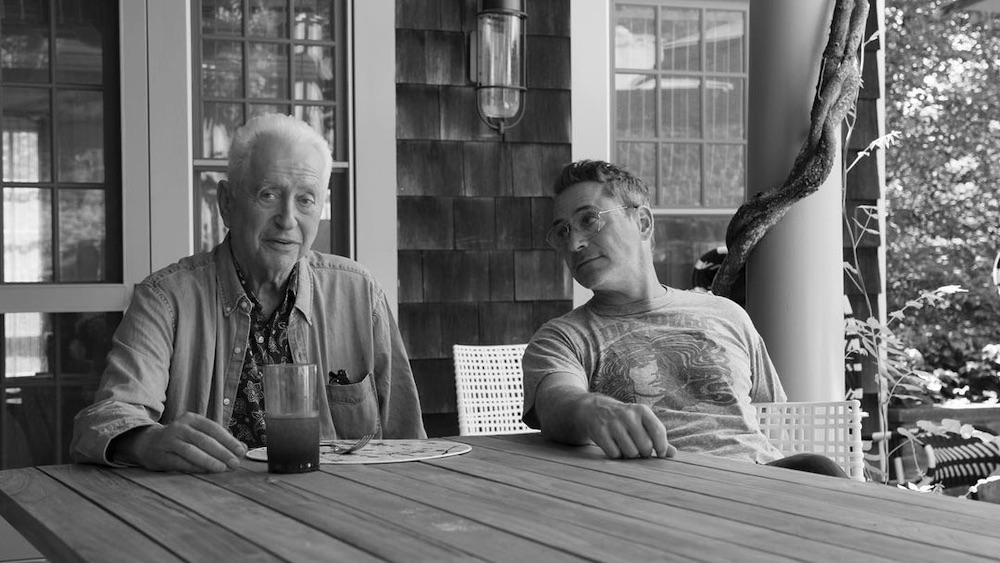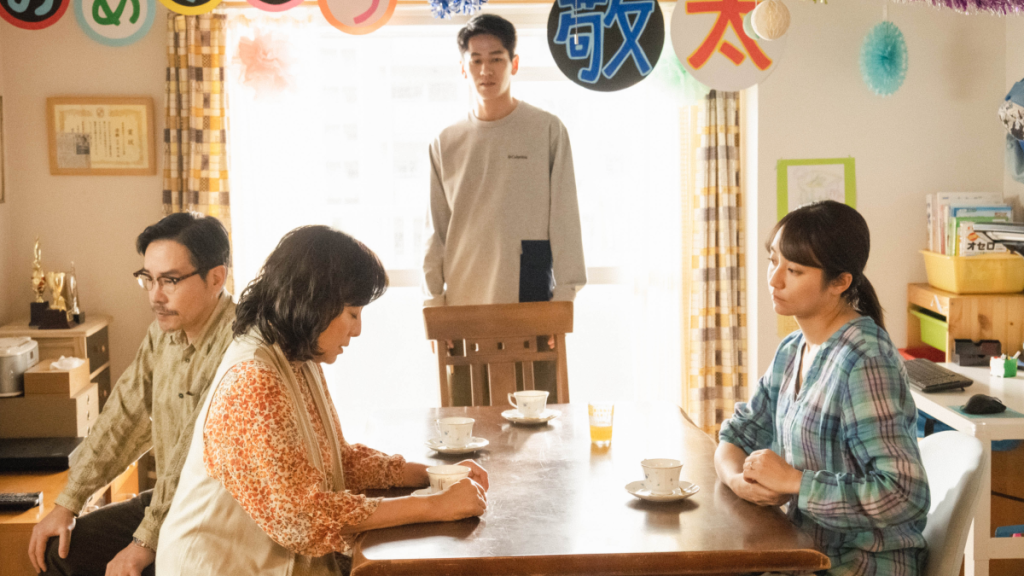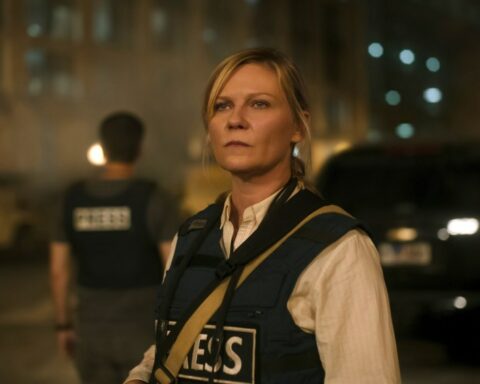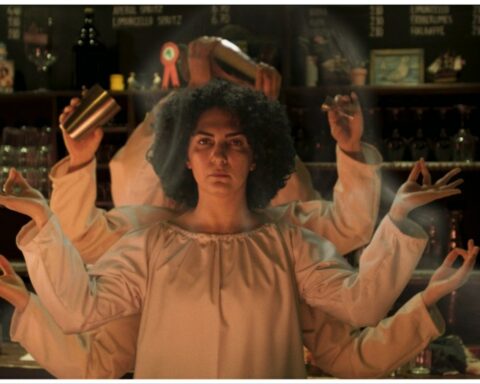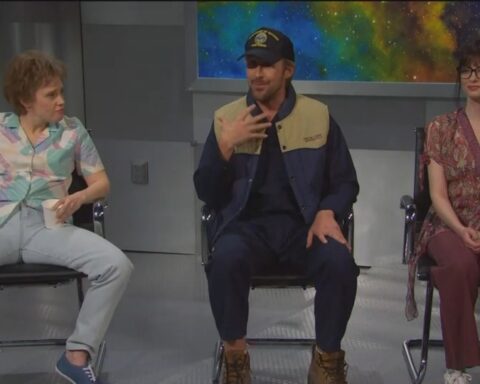The pursuit of justice in the wake of unspeakable war crimes is at the heart of Ukrainian documentary filmmaker Sergei Loznitsa’s timely new feature, “The Kiev Trial.” Produced by Atoms & Void for the Babyn Yar Holocaust Memorial Center, the film had its world premiere out of competition at the Venice Film Festival. The trailer can be viewed below.
Held in January 1946 in the former Soviet Union, the film’s titular trial was among the first court cases to hold Nazis and their collaborators accountable for atrocities committed during World War II — acts that would come to be known as “crimes against humanity” during the historic tribunals held in Nuremberg, Germany.
Using unique, never-before-seen archive footage, Loznitsa reconstructs key moments of the proceedings against the 15 accused, including statements from the defendants and testimonies from eyewitnesses, many of whom were survivors of the Auschwitz concentration camp and the Nazi massacre at Babi Yar, outside of Kyiv.
It is a subject that the 57-year-old filmmaker arrived at with grim prescience when he began developing “The Kiev Trial” several years ago, long before the Russian invasion of Ukraine. As Russian troops now stand accused of committing their own war crimes against Ukrainian civilians — a subject Loznitsa will address in a documentary currently in development — the issue of post-war justice has come to occupy the director’s thoughts more and more.
Nearly 80 years after the trial in Kyiv, Loznitsa hopes the tribunal of Nazi war criminals might offer a blueprint for a post-war order when the conflict in Ukraine inevitably comes to an end. “It is crucial for the existence of society to restore justice, to demonstrate that such crimes can be punished and will be punished,” he says. “This is of course a rather vague hope for the future. And yet, it’s some kind of hope. At least this is something that humanity can do.”
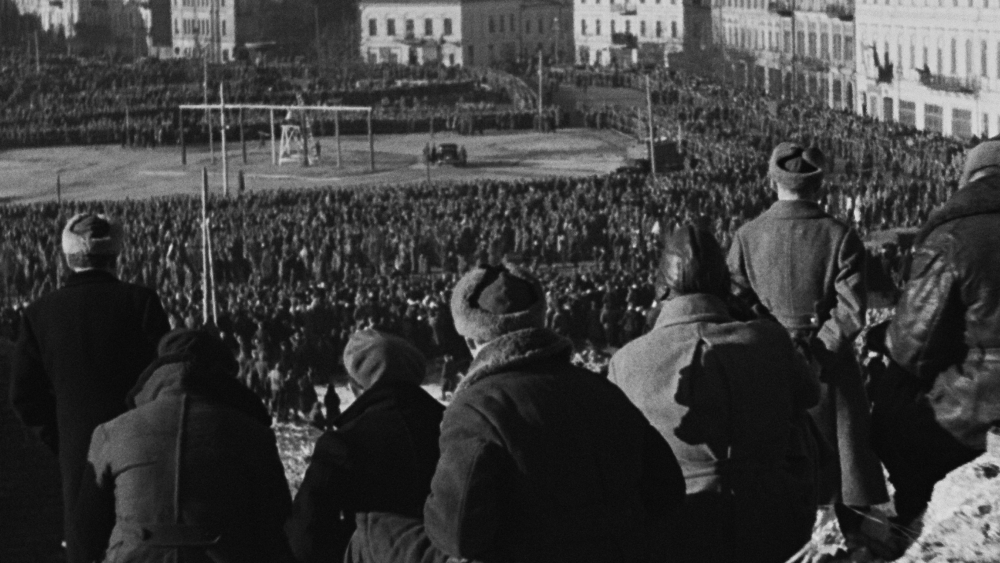
Courtesy of ATOMS & VOID
The trial at the center of Loznitsa’s latest documentary, which bows just months after his previous feature, “The Natural History of Destruction,” world premiered at the Cannes Film Festival, was one of nearly two dozen military tribunals held in the former Soviet Union between 1943 and 1947. The verdicts were based on a Soviet decree against “the German fascist villains, guilty of murdering and torturing the Soviet civilian population,” as well as “the spies, traitors and their collaborators.” The majority of the accused were sentenced to death by hanging.
Those public spectacles are a particular fixation of Loznitsa’s, who notes that the trials and subsequent executions “haven’t actually resolved anything or solved any problems.”
“We cannot prevent this crime. It’s already happened. This trial doesn’t give any guarantee that the same crimes cannot be repeated,” he says. “And now our contemporary situation shows very clearly that this kind of justice does not prevent these kinds of atrocities from being committed. The outcome, the public execution, really does not provoke anything but horror.” He adds: “We just witnessed a nightmare.”
Born in Baranovichi, in today’s Belarus, but raised and educated in Kyiv, Loznitsa has spent recent years in a state of perpetual movement; the prolific filmmaker has made a home in Berlin; in Vilnius, Lithuania; and elsewhere.
Earlier this year, he resigned from the European Film Academy just days after Russian troops marched into Ukraine, arguing that the body’s statement of solidarity with his homeland was “neutral, toothless and conformist in relation to Russian aggression.” Weeks later, he was expelled from the Ukrainian Film Academy — in part because of his refusal to support its calls for a total boycott of Russian filmmakers.
Loznitsa’s position is unwavering — he is against the war but believes that dissenting Russian voices should not be silenced — even if those episodes reflect the murky moral discourse that has emerged since the invasion. “We’re now facing questions which we have never faced before…. Do we have to cancel the entire Russian culture? Do we have to ban the Russian language? Do we have to deport back to Russia all the people who possess a Russian passport?” he says. “These are the questions which are addressed to the entire world.”
While many are quick to draw a hard line in the sand around questions of nationalism in the face of Russian aggression, it is the particular statelessness of our current moral quandary that confounds the director.
“Contemporary wars are always global, and it is not possible — no matter where you find yourself physically — it’s not possible to hide from them,” he says. “Here you are, sitting in your quiet, safe place, facing all these terrible questions, and you realize how powerless you are. You realize that you cannot do anything. You cannot find an answer to any of these questions. You cannot control any of this. Because you do not have any power. Nothing depends on you.”
Those limitations are central to much of Loznitsa’s work, whose fly-on-the-wall, observational style presents the audience with little in the way of commentary or context about the events they are witnessing. “They’re left, one to one, with the image, with the event, and they are free to draw their own conclusions,” says the director, describing each of his archival films as “time capsules” of a previous era.
Returning time and again to the horrors of Europe’s recent past, Loznitsa’s body of work has chronicled like few others the extent of contemporary man’s savagery and folly: both his willingness to commit brutal crimes, and his reluctance — if not refusal — to learn from the past.
Where does that leave the filmmaker? It’s hard not to recognize a certain futility in what Loznitsa admits is a Sisyphean task, though he insists: “It’s not my goal to teach anyone anything.
“There is a saying by [the German philosopher] Max Frisch: ‘Everything has already been said, but since no one listens, one has to repeat it again and again.’” Loznitsa laughs. “There always remains a hope that perhaps somebody might listen.”

